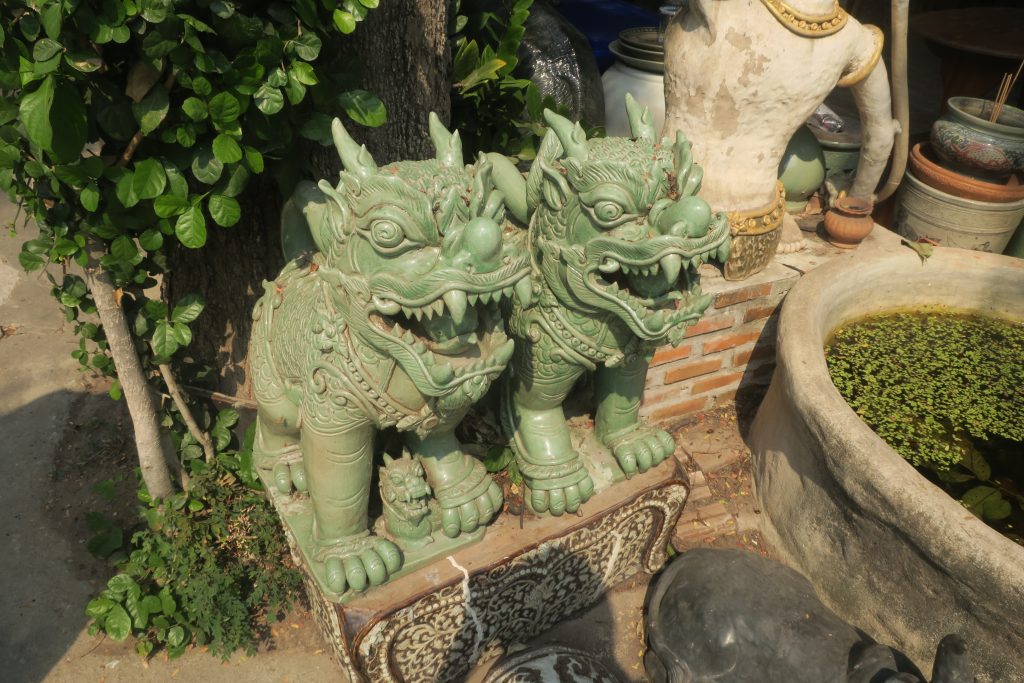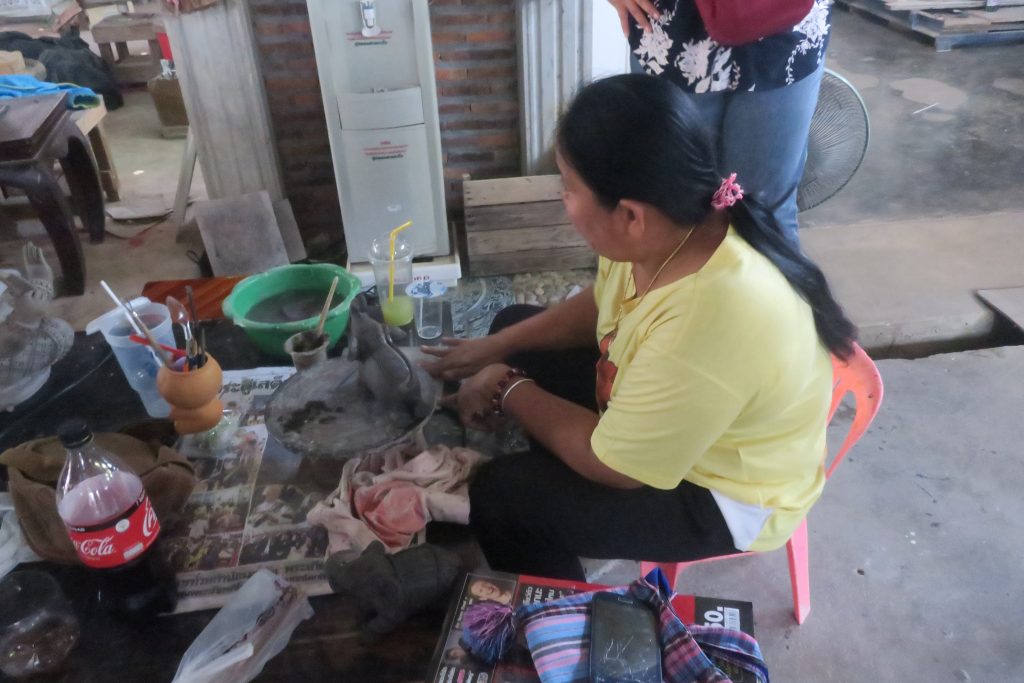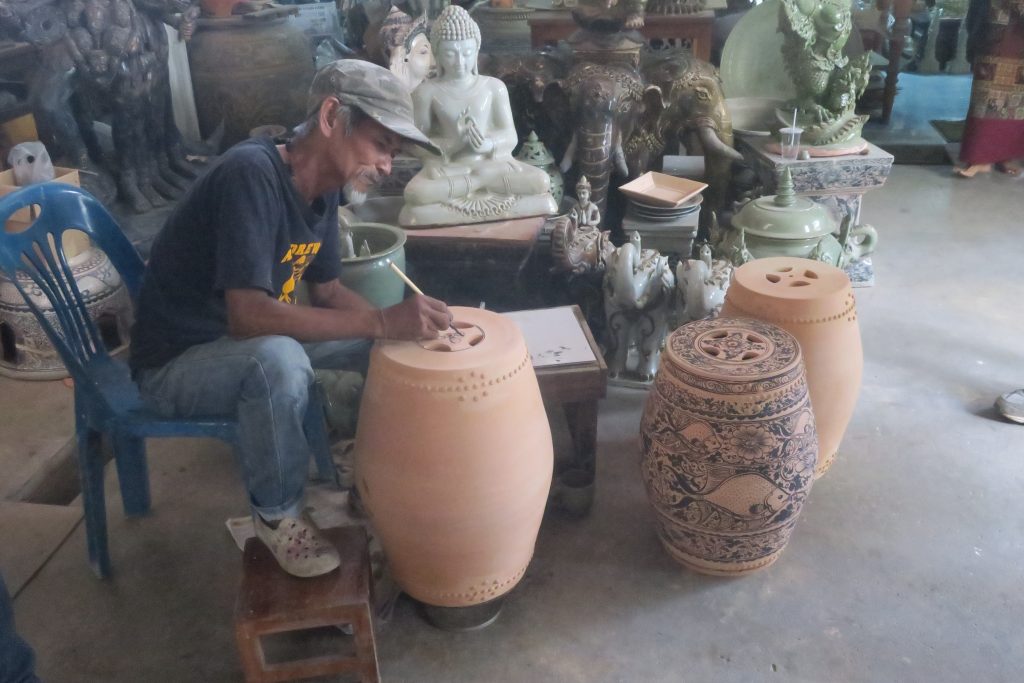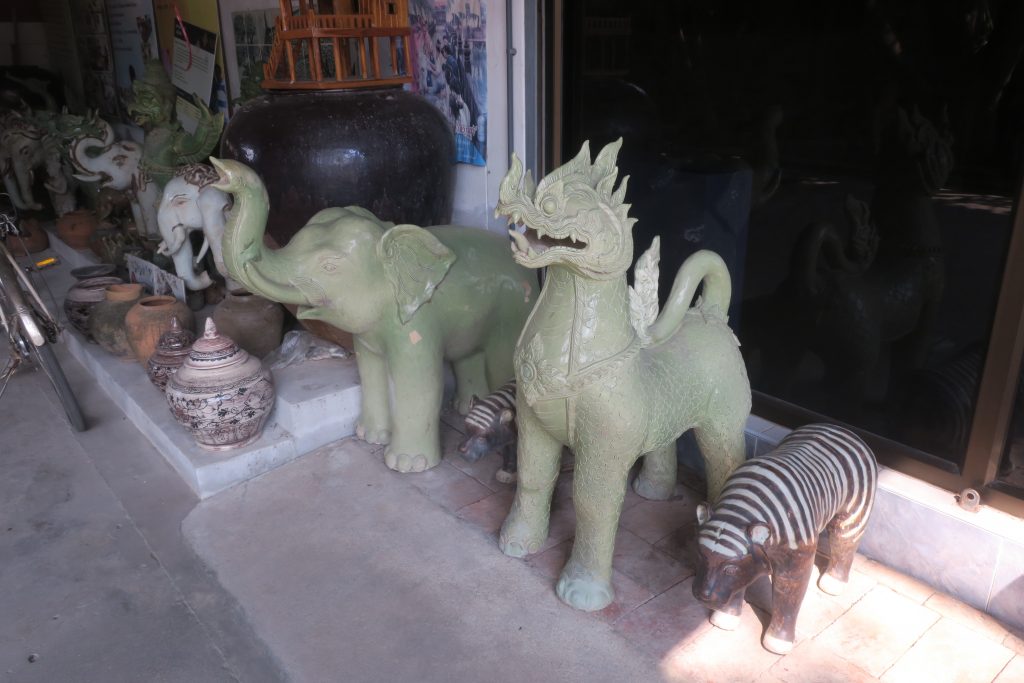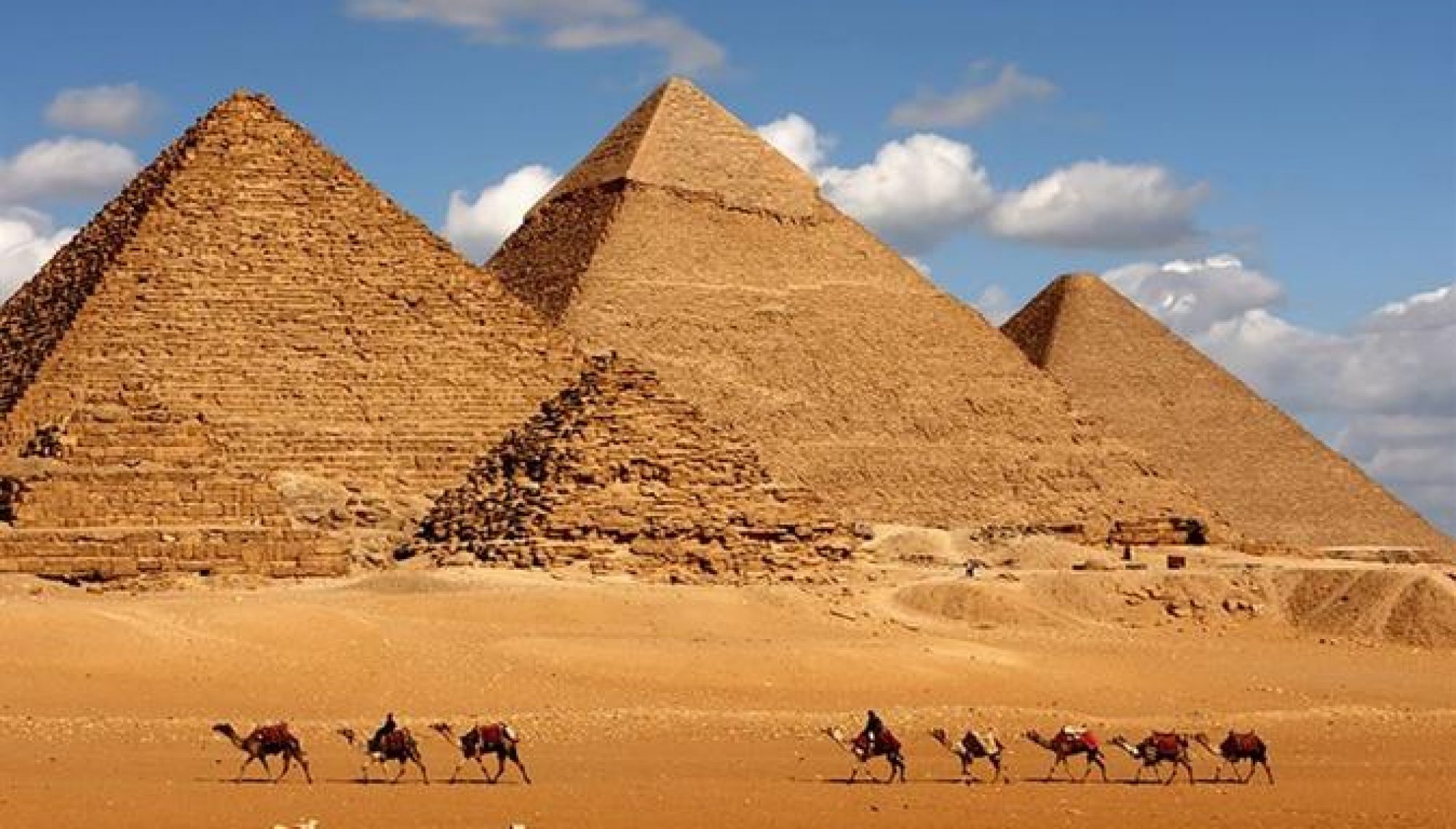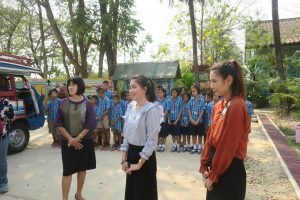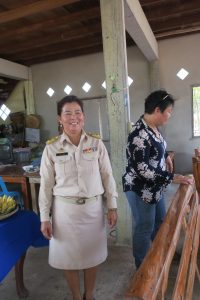We were up early to give alms to the monks. I had done it when I was in Laos and loved it. We sat on the bridge that lead to the monastery in Sukhothai. Lin gave us packages of food that she had bought in the market. Shortly before sunrise, after the monks had finished chanting, they started walking across the bridge. We put our bag of food in their bowl. They take all the food back to the monastery and share it with each other. After they finished collecting alms they came back to bless us. Here are the words to the blessing.
May all living beings be free from violence, fear and war May all living beings be free from suffering and pain May all living beings be free from hatred and killing May all living beings be free from misery and depression May all living beings be happy and be secured May all living beings be well being and be in peace May peace prevail in the world My peace prevail in me myself
It left me with a peaceful, happy feeling.
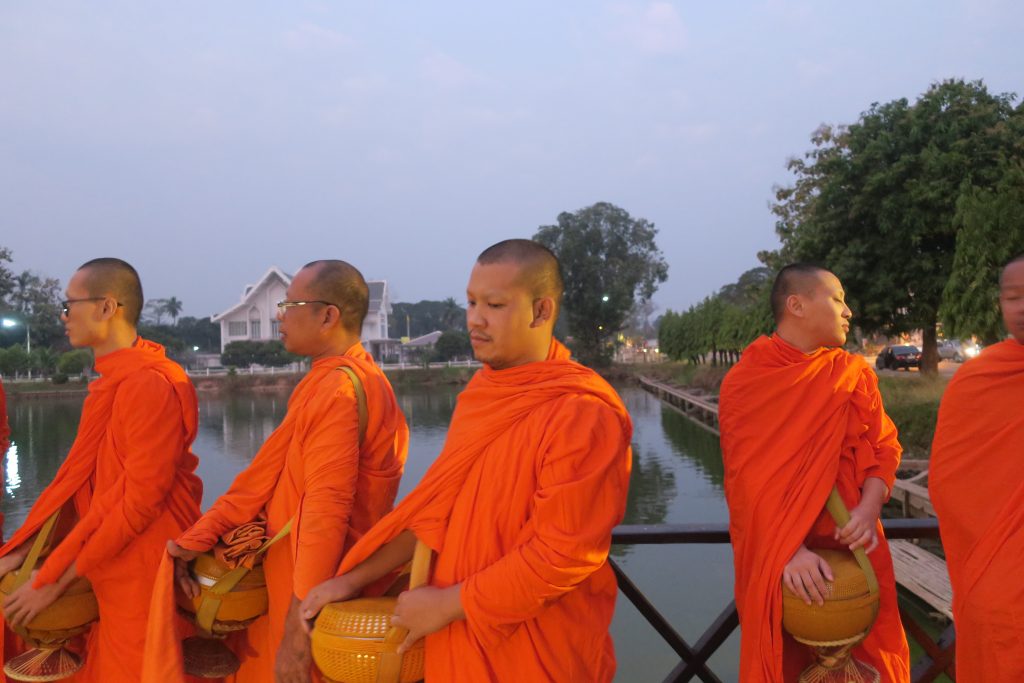
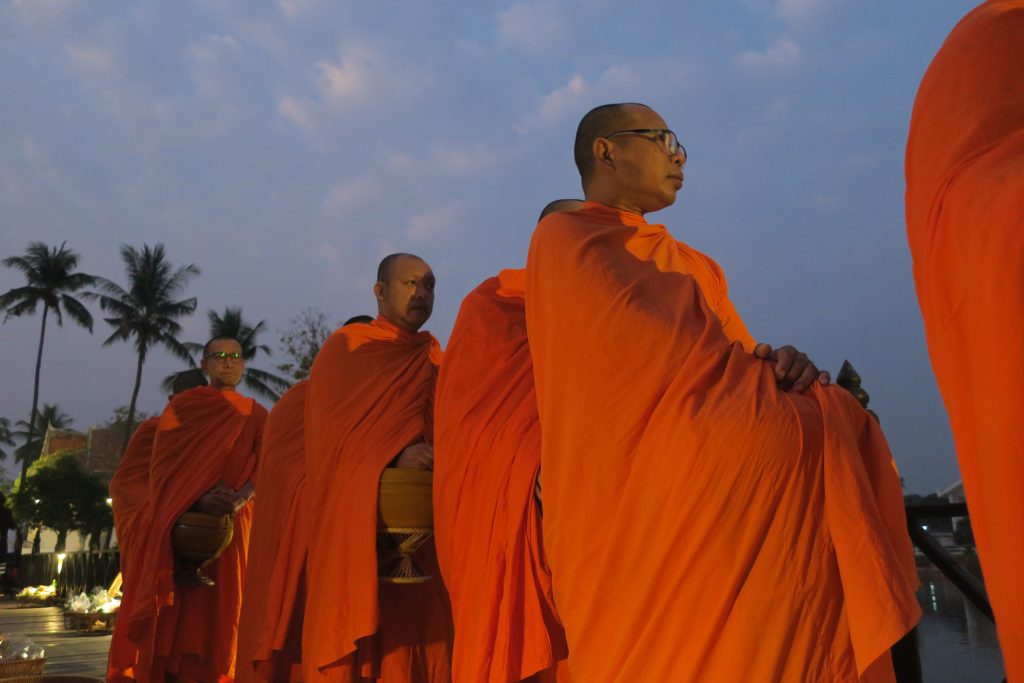
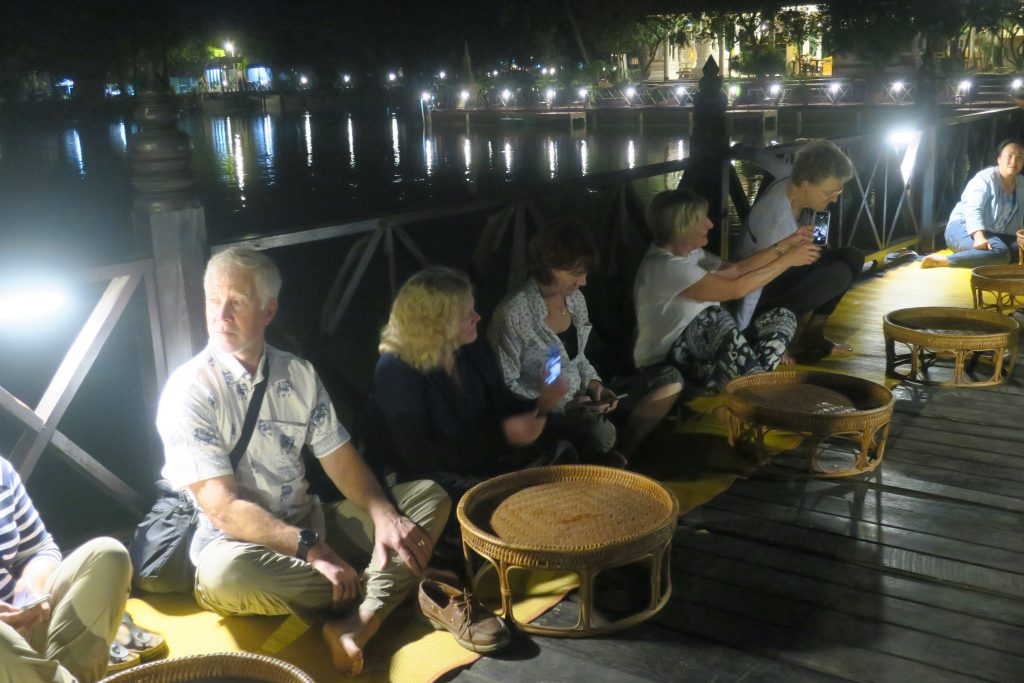
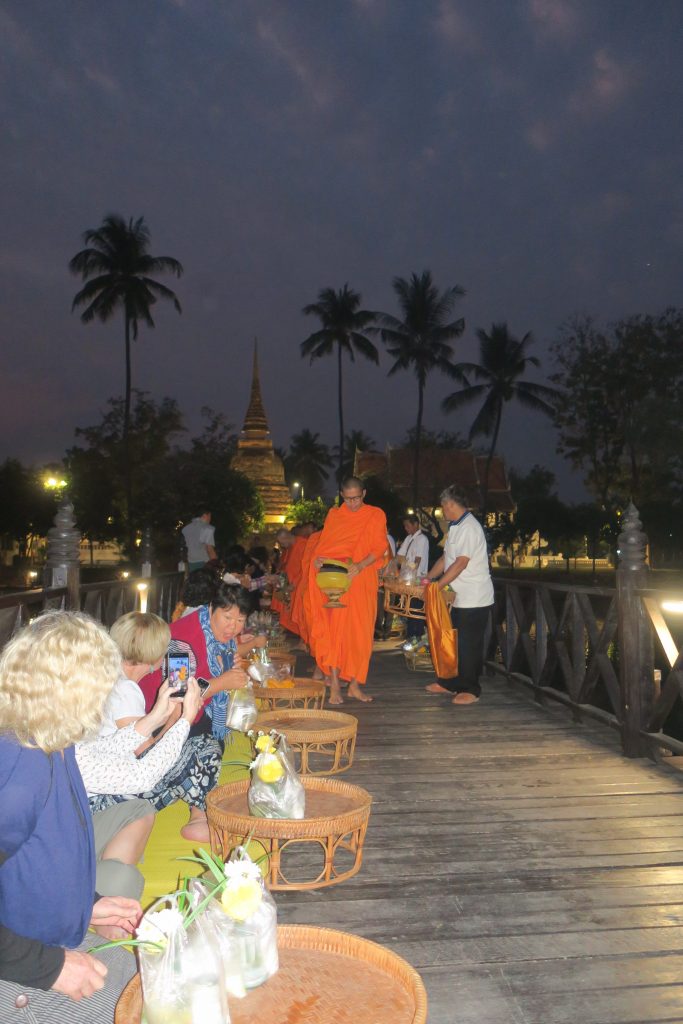
Then we went to the market and looked around for about a half an hour. It was very typical selling everything from vegetables and meat to home goods.
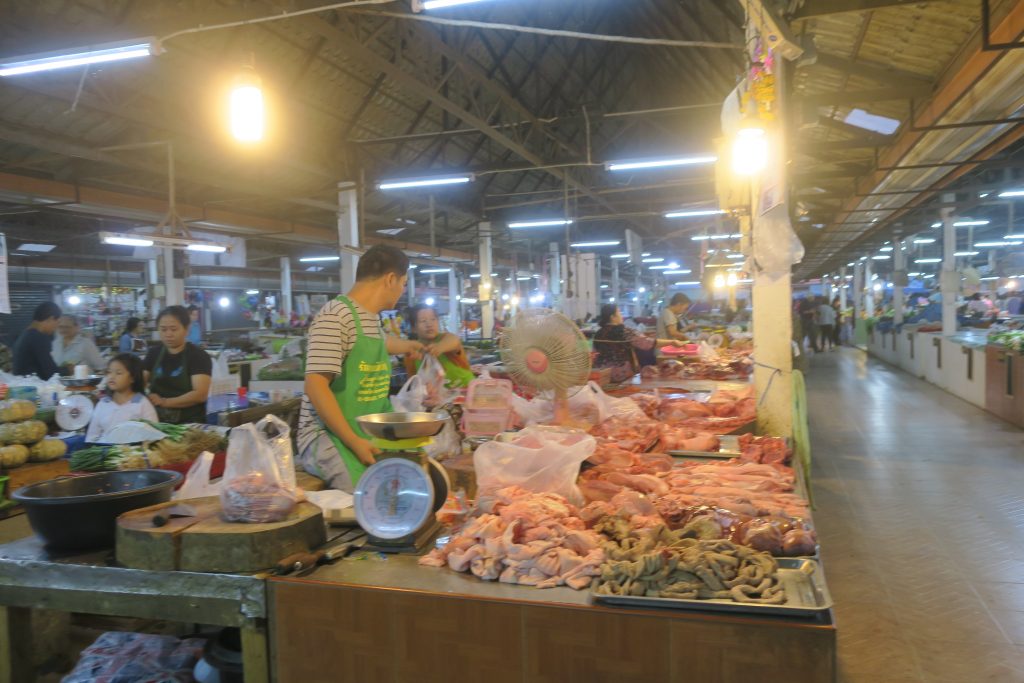
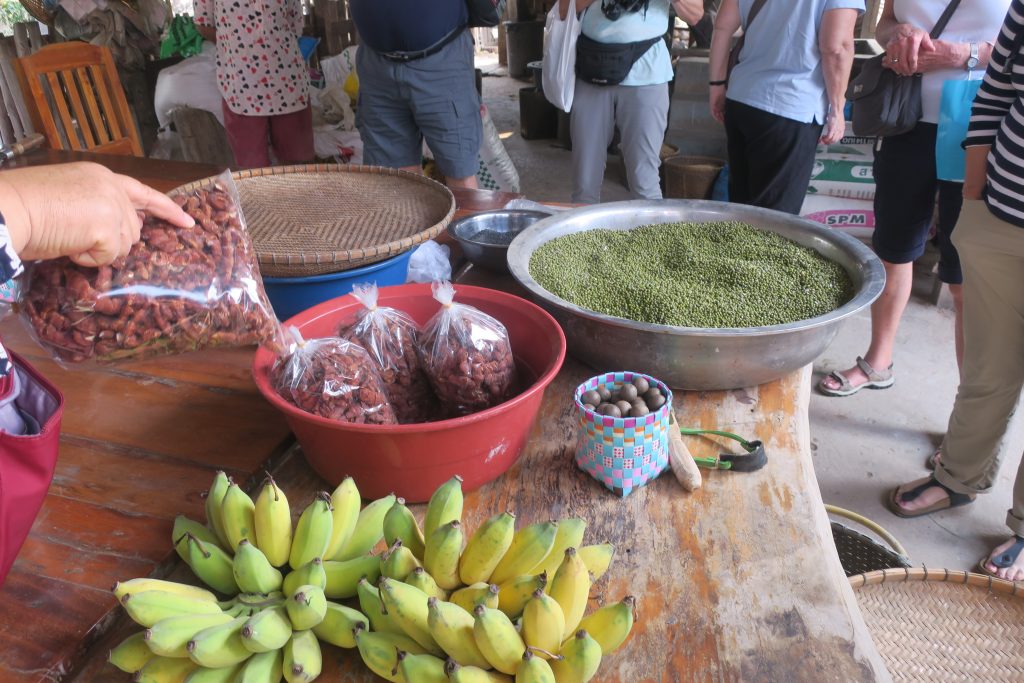
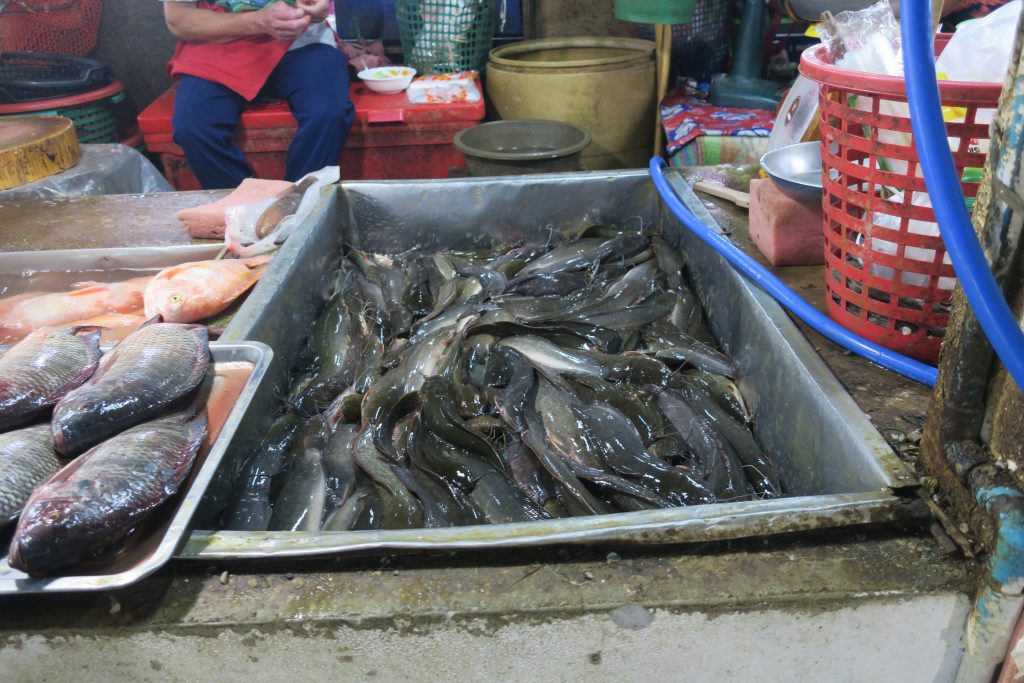
Here is a video of some monks blessing a vendor at the market.
We came back to the hotel to have breakfast and to get ready for our visit to Ban Na Sroi village. OAT, our tour company, calls this “A Day in the Life” and it’s designed to show us what typical village life is like. Our first stop was at a house that ran the village’s rice mill. Lin explained the mill output. Some goes to the animals and some is for human consumption. The owner of the rice mill keeps the animal feed as payment for using her mill. Lin also showed us some of the other products she was selling.
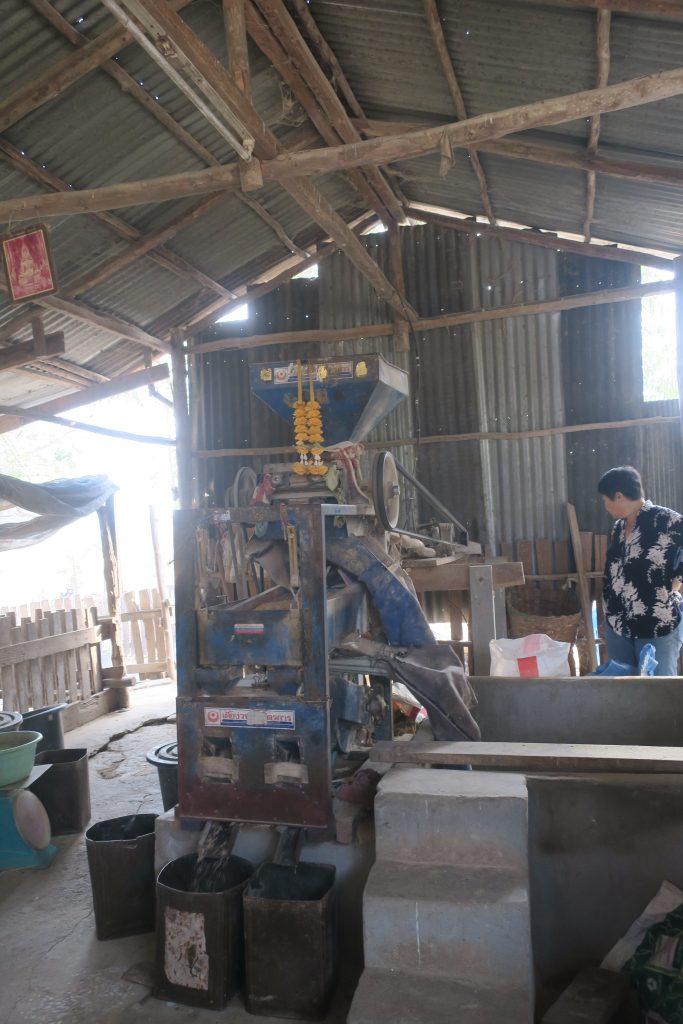

Then we went next door to a lady who had a small shop. She was weaving bamboo into products she would sell. Often they would sell them to a middle man who periodically visits the village who would take the products to the market. This lady also had a little shop.
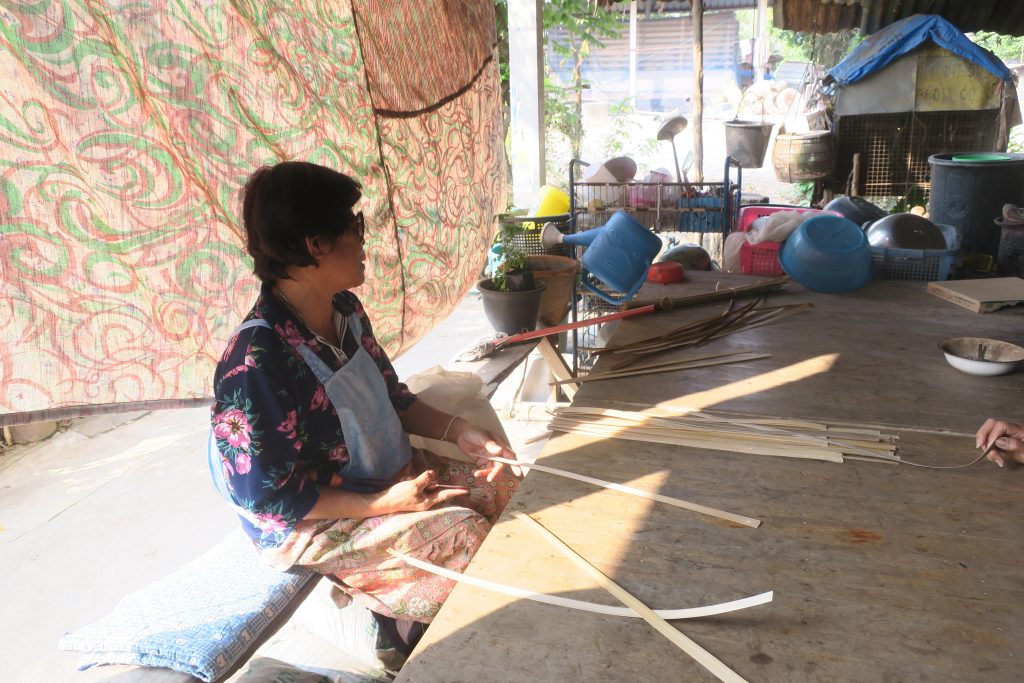
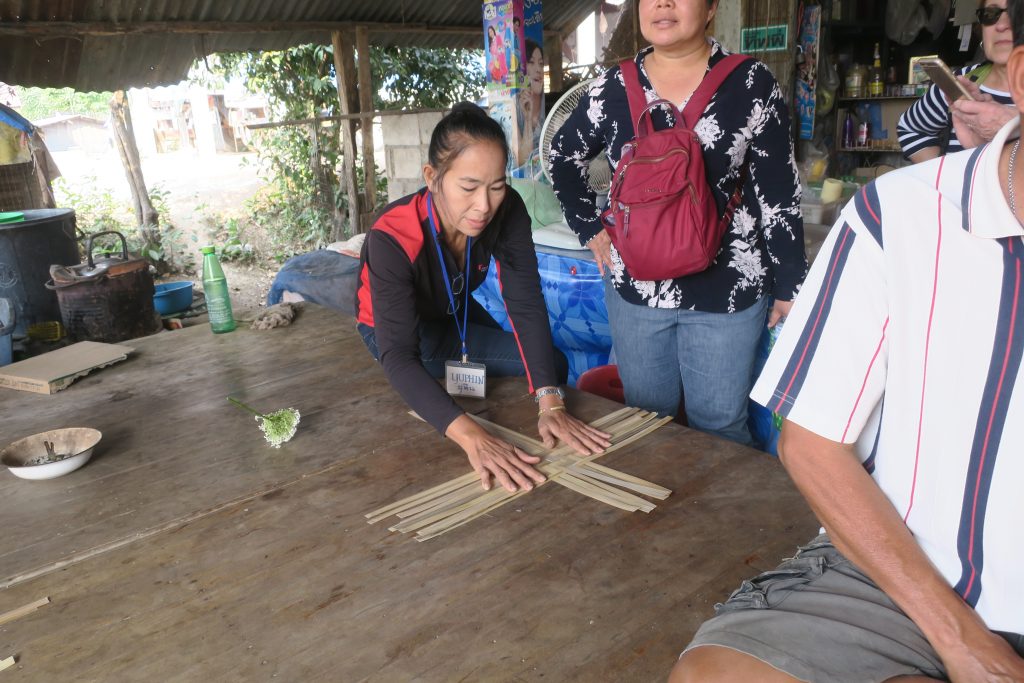
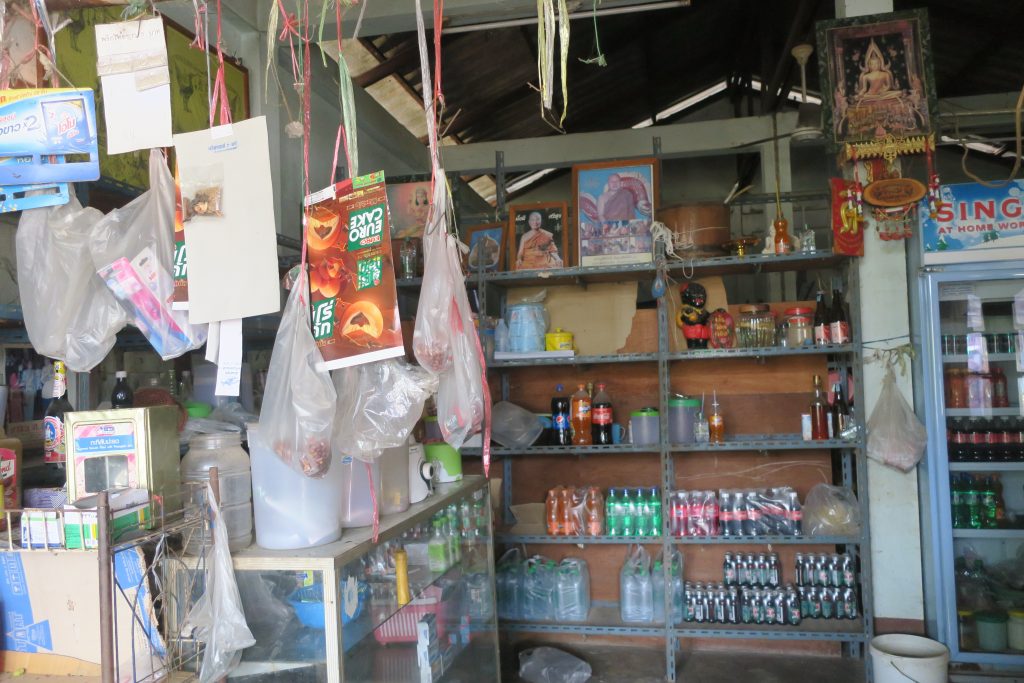
Next stop was a farmer’s house. He grew fruit and vegetables. He had bought more land in hopes of growing more produce, but he didn’t have the water required for the additional plants. It was too expensive to dig a well so the land was not used. He supplemented his income by building fish traps and kites (which made a humming, whirring sound as he whipped in around). This was a common theme — people need to have multiple sources of income to support themselves.
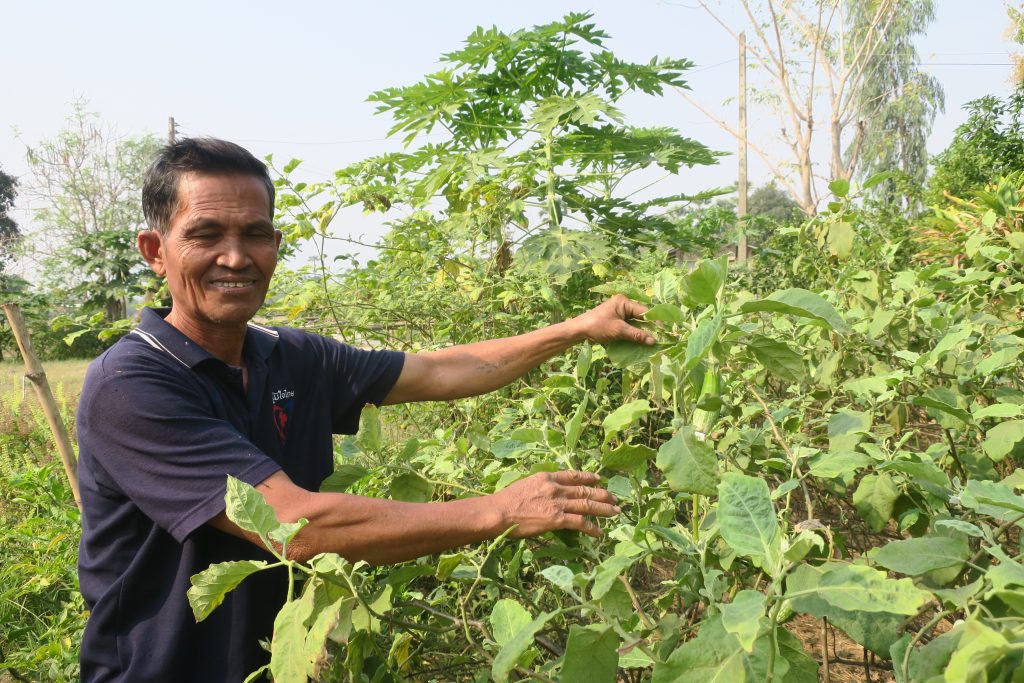
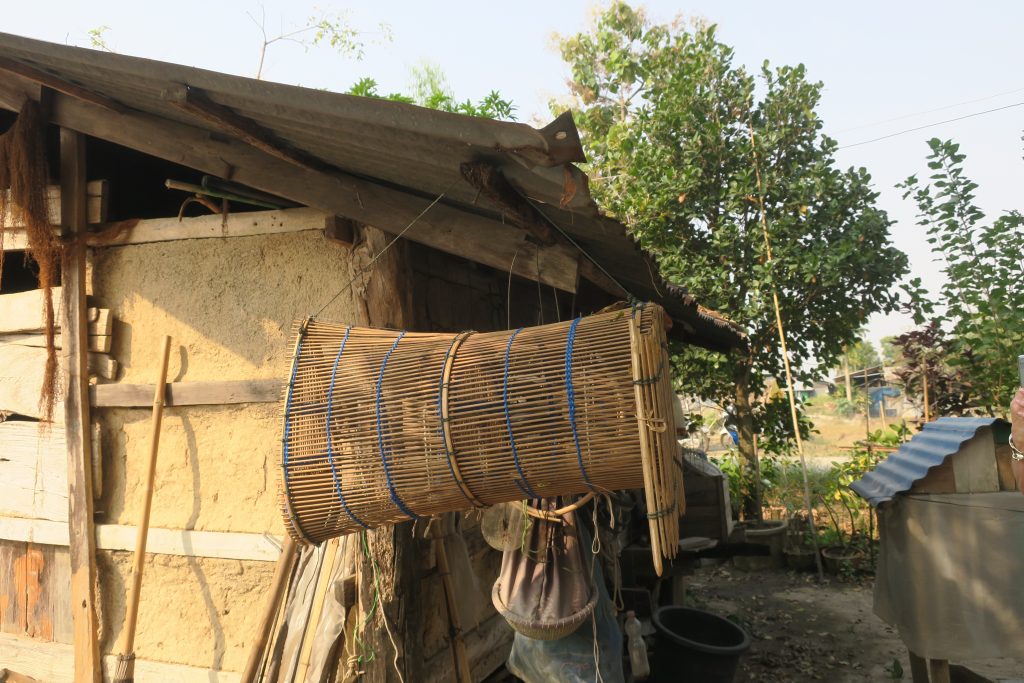
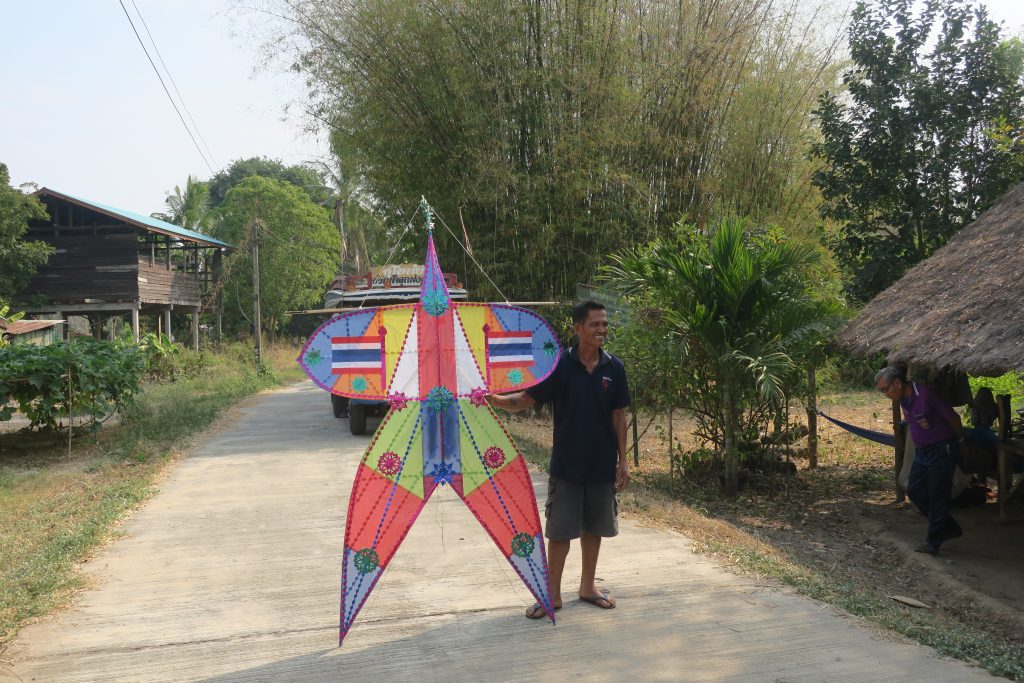
Here is a video of the farmer twirling the kite.
Last stop was with men who train roosters for cock fighting. According to Lin cock fighting is quite popular. Roosters are quite territorial and will fight if there is another rooster in their territory. We saw roosters kept in cages at peoples’ houses in order to keep them apart.
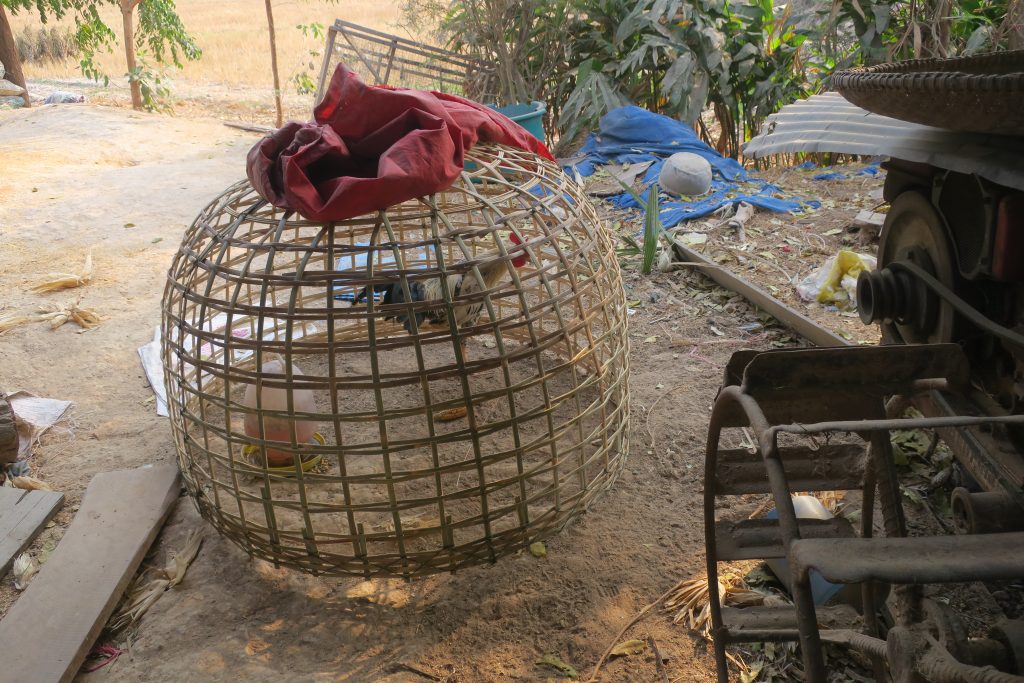
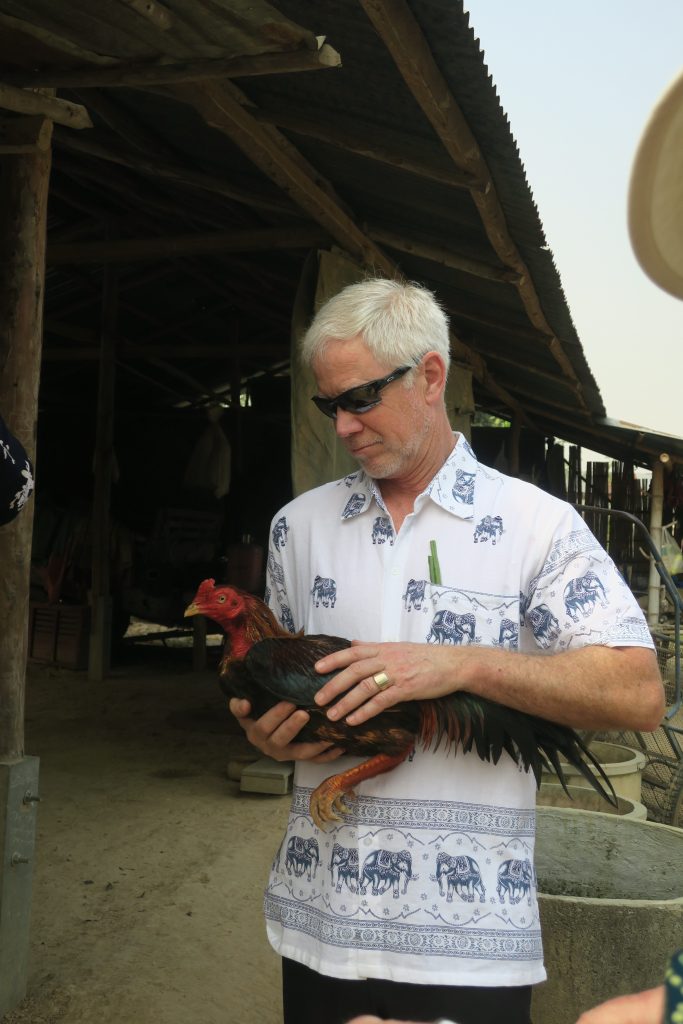
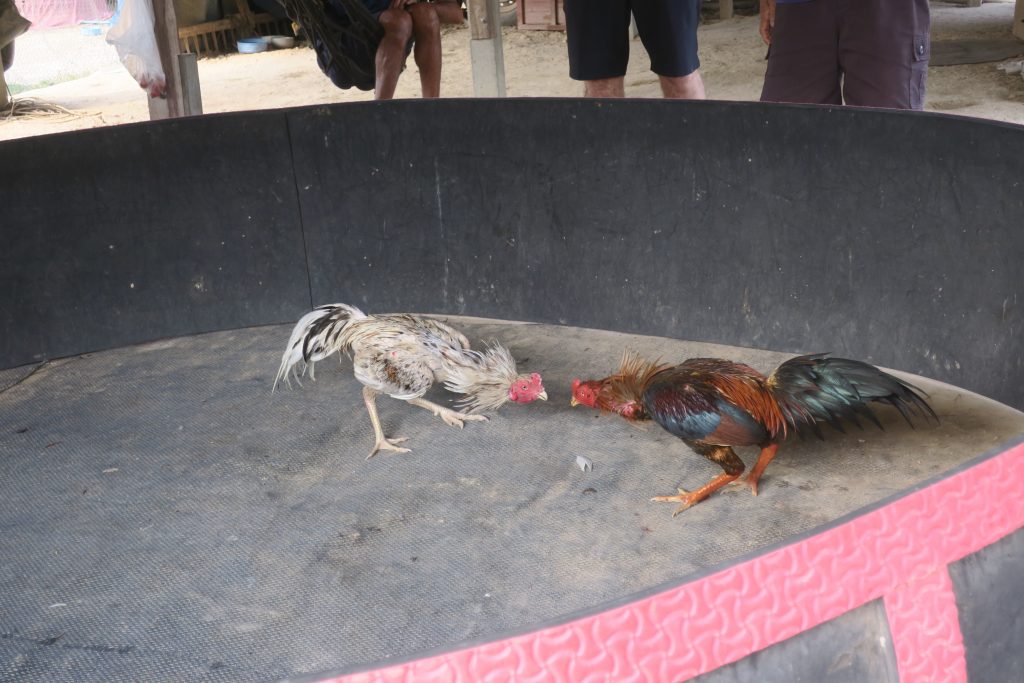
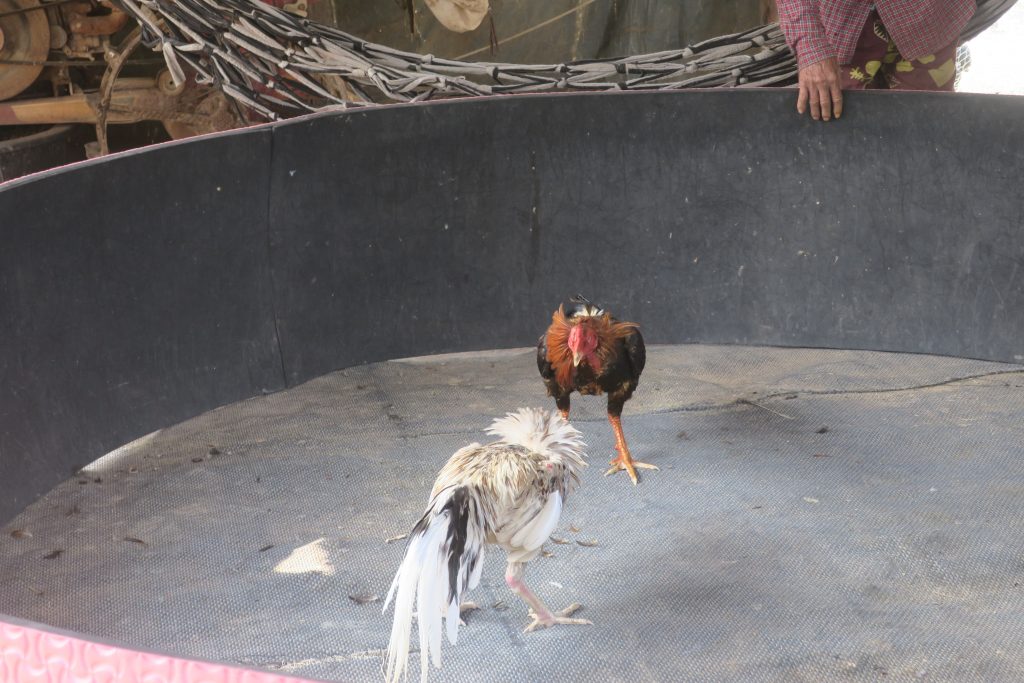
Next we went to the village school. Lin introduced the principal who introduced two new teachers. Today newly licensed teachers are required to pass an English proficiency test before they get their teaching certificate.
We were all escorted through the school by the kids I had 2 boys who were about 10 years old. We went into one classroom where the children were being taught remotely via a computer monitor. Apparently the last king wanted to make sure all children were properly educated so he directed that teaching videos be made to supplement the teachers. There are not enough teachers in the rural areas.
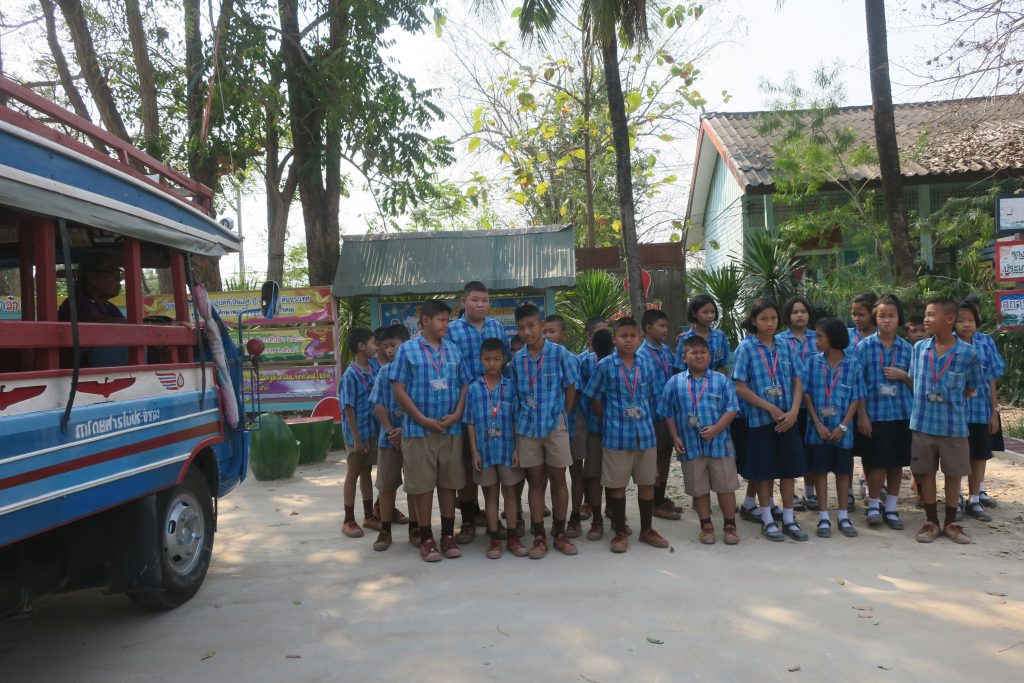
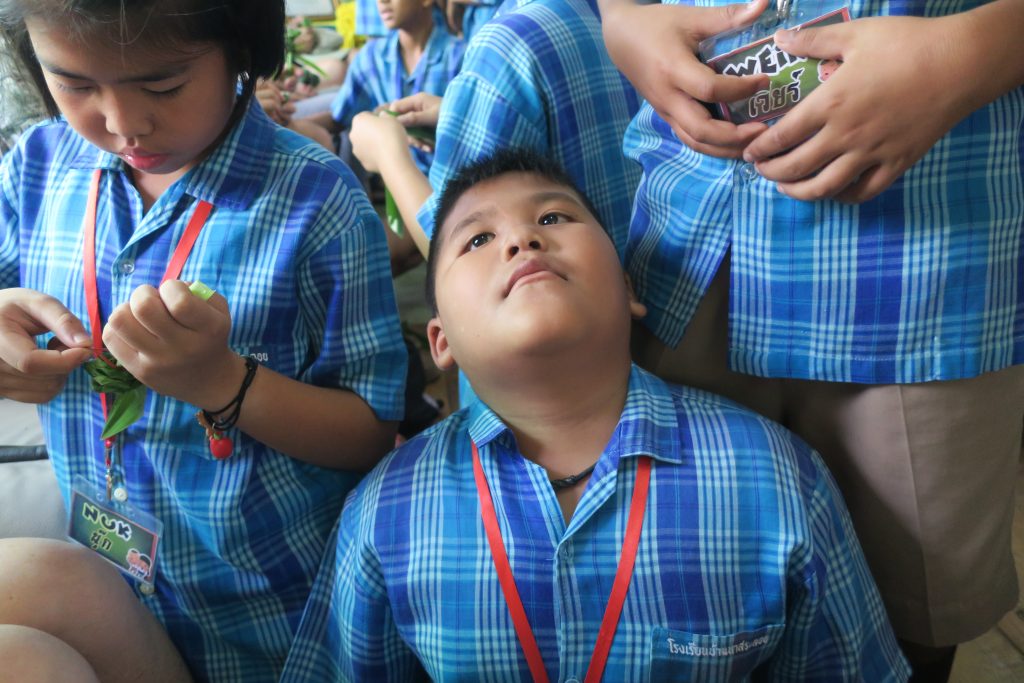
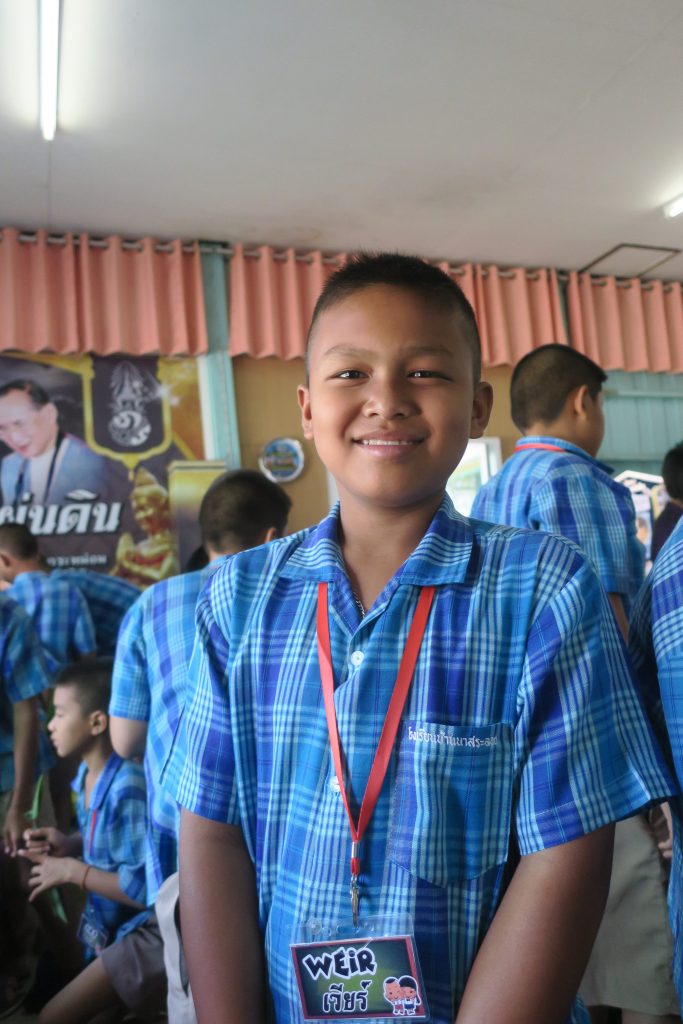
One of the teachers showed us how to make flowers about of palm fronds. The kids were supposed to help us but my boys had no idea what they were doing so I gave up.
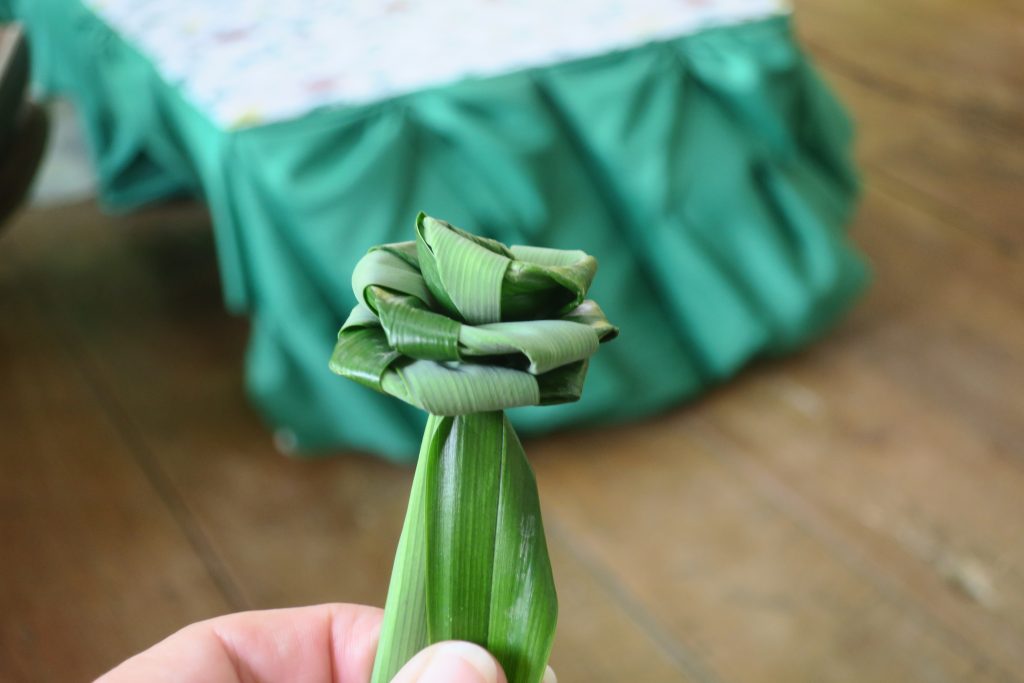
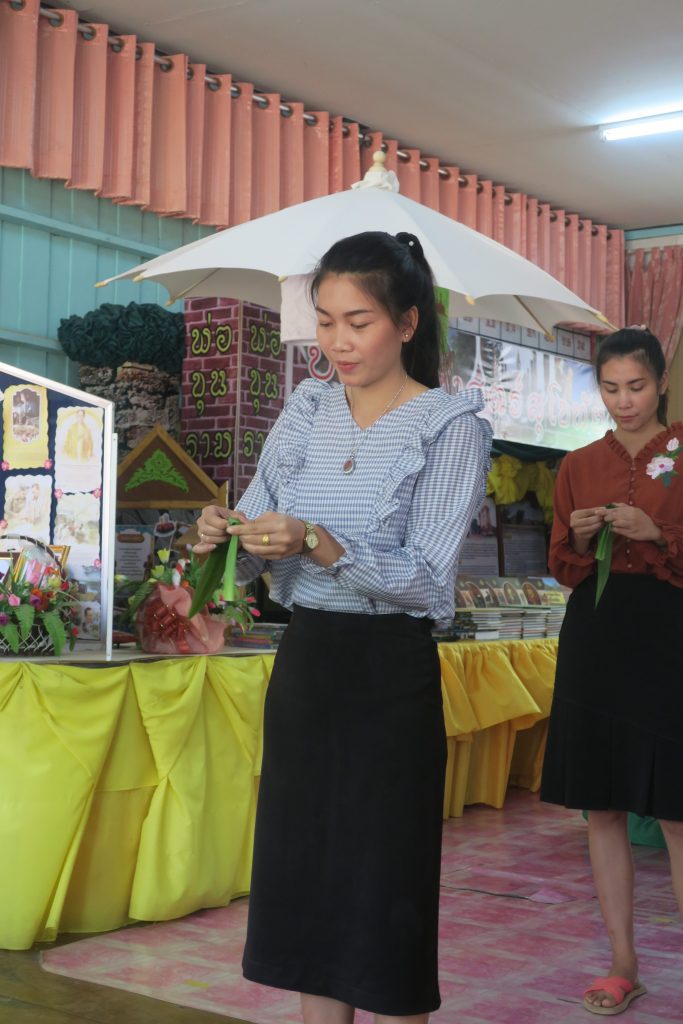
They took us through each of the classrooms and we ended our tour in the “cafeteria” where the boys promptly ditched me for food. The children bring rice for lunch but the rest of their lunch is supplied by the school. We gave the principal our gifts, we had brought socks, and I gave them 3 knitted elephants that I had made.
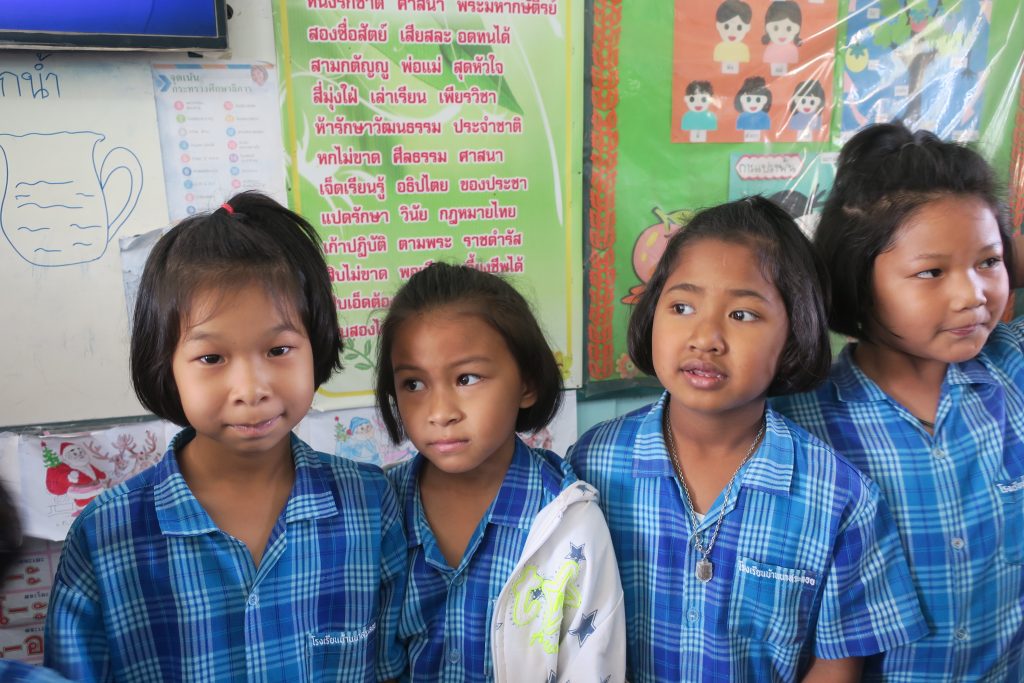
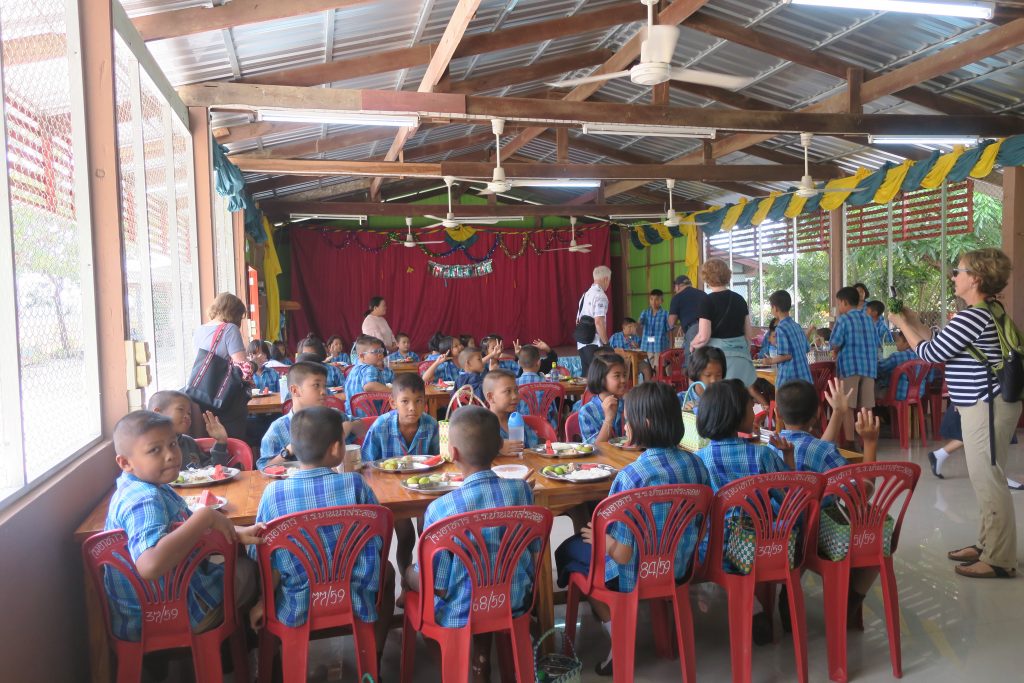
After the school we went to the mayor’s house for lunch.
She was elected by the village but the government is eliminating this position and just assigning someone to manage the village. We had a lovely lunch with several ladies from the village who were there to help. We invited them to join at the table us but they were very hesitant because that’s not done in their culture. Eventually they agreed and we were able to ask them questions. Lin said that domestic violence is fairly common and occurs in about a third of the couples. None of hosts were victims of domestic violence.
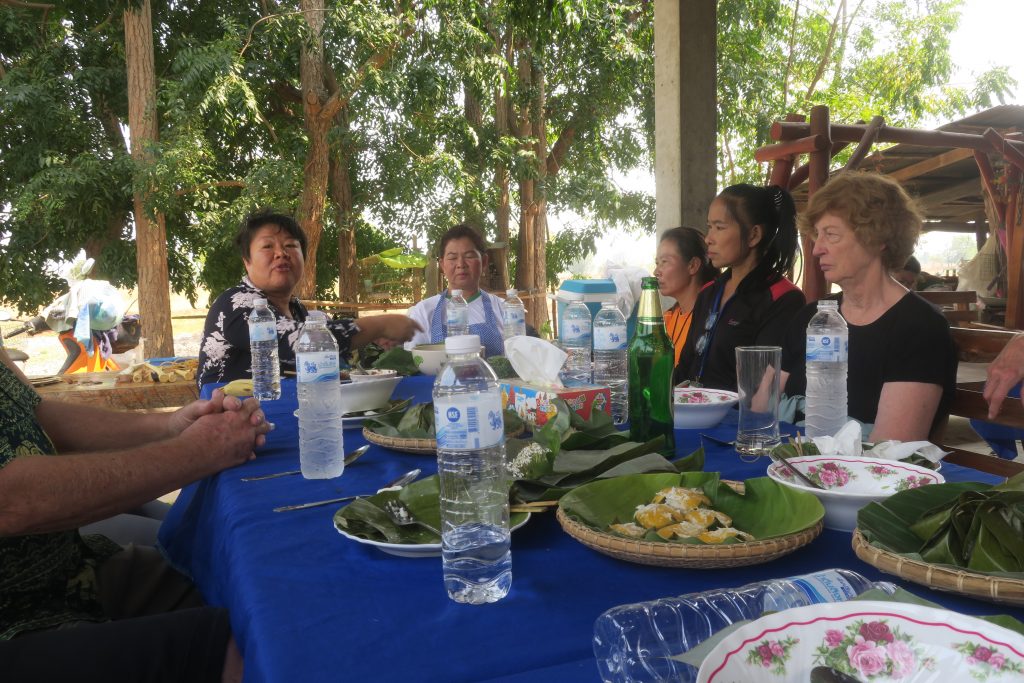
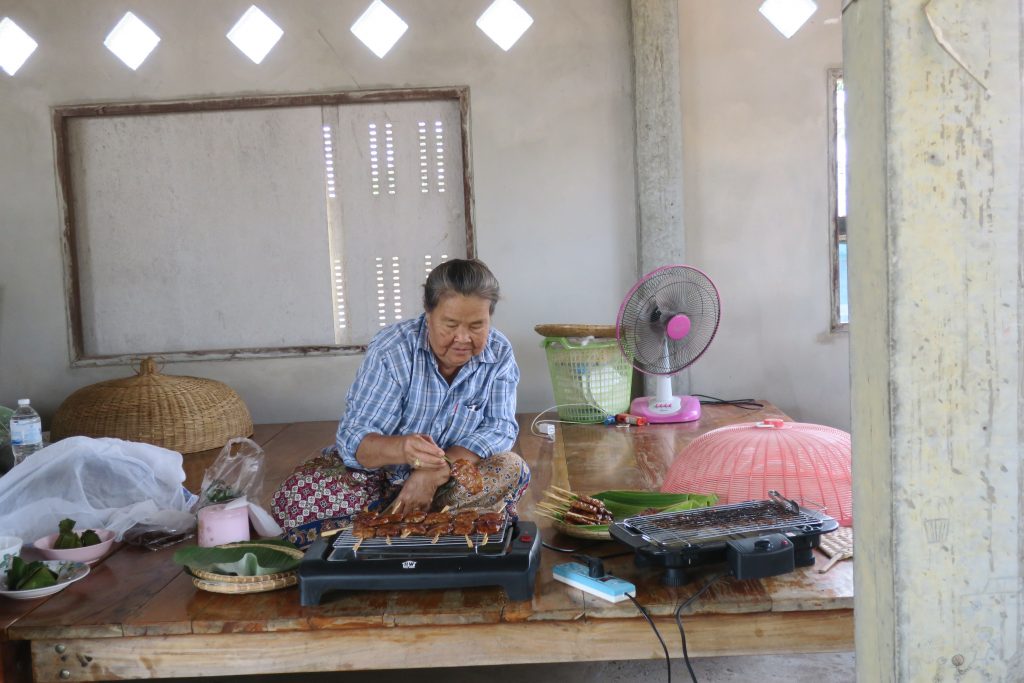
We said good bye to our hosts and some of us went to a celadon factory. Celadon is green pottery that traditionally is made in this area. We saw some very intricate work, but nothing that we felt we absolutely needed.
